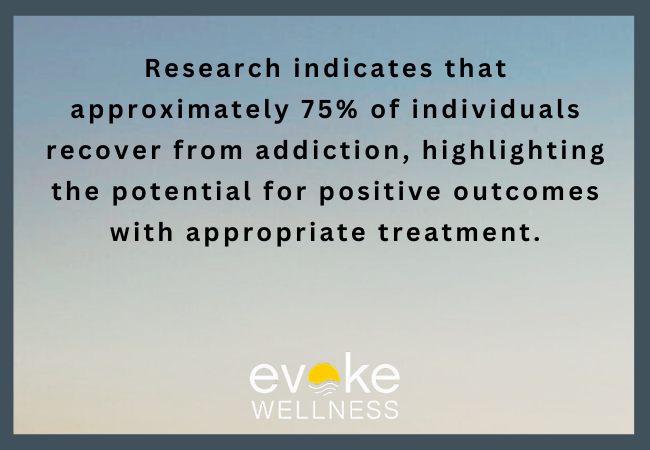Addiction and mental health disorders are complex conditions that require comprehensive treatment. While medical detox and medication can help with physical symptoms, therapy plays a crucial role in addressing the underlying psychological, emotional, and behavioral factors that contribute to substance use and mental health struggles.
For those seeking addiction and mental health treatment in Waltham, MA, therapy is at the core of a successful recovery plan. Through various evidence-based and holistic approaches, therapy helps individuals gain insight into their behaviors, develop healthy coping mechanisms, and build a strong foundation for lifelong recovery.
Understanding the Link Between Addiction and Mental Health
Addiction and mental health disorders are often closely connected, a condition known as a co-occurring disorder or dual diagnosis. Many individuals struggling with substance use also face challenges such as depression, anxiety, PTSD, or bipolar disorder. These mental health conditions can contribute to substance use, as individuals may turn to drugs or alcohol as a way to cope with emotional pain or distress.
Conversely, substance use can worsen or trigger mental health symptoms, creating a dangerous cycle that is difficult to break without professional treatment. Therapy is essential in treating both addiction and mental health conditions simultaneously, ensuring a comprehensive approach to healing.
Why Therapy Is Crucial in Addiction and Mental Health Recovery
Therapy provides a safe and structured environment for individuals to explore their emotions, past experiences, and internal conflicts. Addiction and mental illness often stem from or are exacerbated by unresolved trauma, chronic stress, or dysfunctional thinking patterns. Therapy addresses these root issues rather than just the symptoms.
Key Benefits of Therapy:
-
Helps identify triggers and underlying causes of addiction or mental health conditions
-
Teaches practical coping mechanisms and emotional regulation
-
Encourages accountability and personal growth
-
Improves communication and relationship skills
Types of Therapy Used in Addiction and Mental Health Treatment
Therapy in substance abuse treatment programs in Massachusetts is designed to help individuals identify the root causes of their struggles, develop effective coping strategies, and build healthier lifestyles. Several types of therapy are commonly used to address addiction and co-occurring mental health conditions.
1. Individual Therapy
One-on-one counseling allows individuals to work closely with a therapist to explore their personal challenges, triggers, and recovery goals. Some of the most effective approaches include:
- Cognitive Behavioral Therapy (CBT): Helps individuals identify and change negative thought patterns and behaviors that contribute to addiction and mental health struggles.
- Dialectical Behavior Therapy (DBT): Focuses on emotional regulation, distress tolerance, and interpersonal effectiveness to help individuals manage intense emotions.
- Motivational Interviewing (MI): Encourages individuals to find internal motivation for change and take active steps toward recovery.
- Trauma-Informed Therapy: Addresses past traumatic experiences that may have contributed to substance use or mental health challenges.
2. Group Therapy
Group therapy provides a supportive and structured environment where individuals can share their experiences, learn from others, and develop social skills. Benefits of group therapy include:
- Reducing feelings of isolation by connecting with others facing similar challenges
- Gaining insights and perspectives from peers in recovery
- Practicing healthy communication and relationship-building skills
- Receiving encouragement and accountability from a supportive community
3. Family Therapy
Addiction and mental health struggles do not only affect the individual—they impact loved ones as well. Family therapy is an essential component of mental health therapy programs in Massachusetts, as it helps repair relationships, improve communication, and educate family members about addiction and recovery. Key benefits include:
- Strengthening family bonds and rebuilding trust
- Addressing enabling behaviors and setting healthy boundaries
- Teaching loved ones how to provide constructive support
- Creating a healthier home environment for long-term recovery
4. Holistic Therapy Approaches
In addition to traditional therapy, holistic approaches can enhance the healing process by addressing an individual’s emotional, spiritual, and physical well-being. Common holistic therapies include:
- Mindfulness and Meditation: Help individuals develop self-awareness and manage stress effectively.
- Art and Music Therapy: Provide creative outlets for emotional expression and healing.
- Yoga and Exercise Therapy: Improve physical health, reduce anxiety, and promote emotional balance.
- Nutritional Counseling: Helps individuals restore their physical health and understand the role of nutrition in mental wellness.
Role of Therapy in Relapse Prevention
Recovery is a lifelong journey, and therapy continues to play a vital role even after completing an addiction treatment program. Ongoing therapy helps individuals maintain sobriety by:
- Identifying and managing triggers that could lead to relapse
- Teaching problem-solving and stress-management techniques
- Providing a strong support system through continued individual and group therapy
- Helping individuals navigate life transitions and challenges without turning to substances
By participating in therapy as part of an aftercare plan, individuals significantly improve their chances of long-term success.
The Role of Therapy in Dual Diagnosis Treatment
Many individuals dealing with addiction also face mental health disorders such as anxiety, depression, PTSD, or bipolar disorder. This is known as a dual diagnosis or co-occurring disorder.
Therapy addresses both conditions simultaneously by:
-
Identifying how mental health symptoms contribute to substance use
-
Teaching healthy coping strategies that reduce reliance on substances
-
Encouraging insight into how lifestyle, thinking, and emotions are interconnected
Integrated therapy is essential in Addiction and Mental Health Treatment in Waltham, Massachusetts, and it remains a cornerstone of all our dual diagnosis programs.
Importance of Dual Diagnosis Treatment
A key component of addiction and mental health treatment in Waltham, MA, is dual diagnosis care, which ensures that both substance use and mental health disorders are treated together. Treating one condition while neglecting the other often leads to relapse or worsening symptoms.
Dual diagnosis treatment includes:
- Comprehensive assessment and diagnosis to identify co-occurring disorders
- Integrated treatment plans that address both addiction and mental health needs
- Medication management for those who require psychiatric support
- Therapeutic interventions that help individuals understand how their mental health and substance use are interconnected
By addressing both conditions simultaneously, individuals receive the full-spectrum care needed for lasting recovery.
Why Choose Evoke Wellness Waltham?
At Evoke Wellness, we understand that overcoming addiction and mental health challenges requires compassionate, individualized care. Our substance abuse treatment programs in Massachusetts offer a range of therapy options designed to meet each person’s unique needs.
Experienced and Compassionate Team
Our team consists of licensed therapists, addiction counselors, medical professionals, and mental health specialists who provide expert care. We are dedicated to helping individuals navigate their recovery journey with guidance and support.
Comprehensive and Holistic Treatment Approach
We offer a combination of evidence-based therapies and holistic approaches to ensure well-rounded healing. Our programs integrate individual and group therapy, trauma treatment, mindfulness practices, and relapse prevention strategies.
Personalized Treatment Plans
Every individual’s journey is different. We create customized treatment plans that address personal challenges, goals, and needs, ensuring that each person receives the best possible care.
A Safe and Supportive Environment
Our facility provides a structured and comfortable setting where individuals can focus on healing. We foster a sense of community and connection, helping individuals build meaningful relationships with peers and therapists.
Long-Term Support and Aftercare
Recovery does not end when treatment is completed. We offer ongoing support through aftercare programs, outpatient therapy, and relapse prevention planning to help individuals maintain sobriety and mental wellness long after leaving rehab.
Conclusion
Therapy is the cornerstone of addiction and mental health treatment. Through individual, group, and family therapy, individuals gain the tools and support needed to overcome challenges, develop healthy habits, and build a fulfilling life in recovery.
At Evoke Wellness, we are committed to providing high-quality mental health therapy programs in Massachusetts. If you or a loved one is struggling with addiction or a mental health condition, we are here to help. Call 866.395.3110 today to learn more about our treatment programs and take the first step toward lasting recovery.
Frequently Asked Questions (FAQ)
Why is therapy important in addiction and mental health treatment?
Therapy helps individuals address the underlying causes of addiction and mental health disorders, develop coping strategies, and build a support system. It provides essential tools for long-term recovery.
What types of therapy are used in addiction and mental health treatment?
Common therapies include Cognitive Behavioral Therapy (CBT), Dialectical Behavior Therapy (DBT), trauma therapy, group therapy, family therapy, and holistic approaches like mindfulness and meditation.
How does therapy help prevent relapse?
Therapy teaches individuals how to recognize triggers, manage stress, and develop healthy coping mechanisms. Ongoing therapy after treatment also provides continued support and accountability.
What is the role of family therapy in addiction treatment?
Family therapy helps repair relationships, improve communication, and educate loved ones about addiction and recovery. It fosters a supportive home environment that encourages long-term sobriety.
Can therapy be part of a dual diagnosis treatment plan?
Yes, therapy is essential in dual diagnosis treatment. It addresses both addiction and co-occurring mental health disorders, ensuring a comprehensive approach to recovery.
How long does therapy last in addiction treatment?
The duration of therapy varies based on individual needs. Some people continue therapy for months or years after completing a treatment program to maintain their mental well-being and sobriety.



